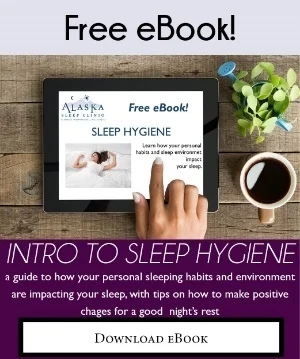A good night’s sleep is essential to maintaining optimum physical and mental health. Your behavior during the day can have an impact on the quality of rest you get. Daily routines, diet, and medications can mean the difference between a sound forty winks or a restless night.
We explore tips and habits that you can try to help you doze better and wake up rested and refreshed.
Get Into a Routine
One thing that our bodies thrive on is consistency. It would help if you tried to go to bed every evening and rise each morning, at the same time, including during holidays and on weekends. Having a set schedule helps set your body’s “internal clock” and trains it to wind down at a certain time.
Following the same routine on your days off helps to avoid a Monday morning sleeping hangover. Even if you’ve had a bad night, try to stick to the same wake-up times; this will help you consolidate sleep the following day.
Visit a Doctor
If you find that you still can’t sleep and suffer from bad insomnia, no matter what you do, it might be time to pay a visit to the doctor. After eliminating the more obvious reasons for the lack of slumber, he might refer you to a clinic where they’ll do tests to determine what’s keeping you up at night.
The suggested course of treatment will depend on your finances and after taking health insurance into consideration if you have any. Should you suffer from sleep apnea, you might need a CPAP machine, an expensive piece of equipment that most policies cover.
Ban Electronic Devices
Exposure to light makes it more challenging to fall asleep, and this includes prolonged use of glare-emitting screens from electronic devices. Try to switch off your phone and avoid using a computer an hour before bedtime. It’s best if you remove any PCs, TVs, and phones from the bedroom altogether.
Don’t Be a Clock Watcher
If you’re trying to fall asleep or you wake up in the middle of the night, staring at a clock in your bedroom can increase stress and make it harder to doze off. Turn it to face away from you or put it somewhere that you can’t see easily from your bed.
Should you wake up and struggle to fall asleep, get up and do something quiet and restful such as reading or listening to soothing music. Ensure that you keep the lights dim, and when your eyelids start to feel heavy, you’re ready to sleep and can return to bed.
Prepare for Bed
Our minds are so busy that we often find it difficult to switch off when it’s time for our forty winks. To ease the transition, do some relaxing activities an hour or so before bed. You can take a warm bath, read a book, or practice relaxation exercises such as yoga.
Avoid doing anything stimulating or discussing highly emotional issues that’ll cause your brain to stay awake. The idea is to destress and calm your mind because when our bodies are stressed, they produce cortisol, which increases alertness.
Another great way of clearing your mind is keeping a journal where you can write down your thoughts or anything that’s bothering you before dozing off.
Final Thoughts
We need rest to function properly and be productive. To help you develop good sleep hygiene, start a routine where you go to bed and rise at the same time every day. If you have really bad insomnia, you might need to go to a specialized clinic to run some tests and determine what’s causing you to stay awake.
It would be best to switch off your phone and any other electronic devices at least an hour before bed to prevent over stimulating the mind. Keep your clock out of sight, so it doesn’t stress you out should you wake up in the middle of the night.
To help ease into slumber mode, you can try some relaxing activities before bed, such as reading a book or gentle yoga. If you follow the above advice consistently, you should see positive results in your sleep patterns.
If you start to notice a negative pattern that could be corrected by your own choices, make changes after a week and see how your next week goes. If there is a vast improvement to your sleep, you may be able to correct the behavior yourself and avoid having an unnecessary sleep study.
A sleep study may still be the best choice though the type of sleep study varies by a patient’s symptoms. Healthcare providers will monitor your sleep either in a lab or at your home using portable home sleep apnea testing equipment.
If you live in Alaska and are ready to take back your sleep, contact The Alaska Sleep Clinic and receive a free 10-minute phone consultation with a sleep educator who can help you determine if a sleep study is right for you.













